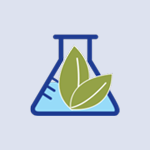Reference
Michaëlsson K, Wolk A, Langenskiöld S, et al. Milk intake and risk of mortality and fractures in women and men: cohort studies. BMJ. 2014 Oct 28;349:g6015.
Study Design
Two large cohorts were administered food-frequency questionnaires. One cohort responded to a second food-frequency questionnaire.
Participants
One cohort of 61,433 women, the Swedish Mammography Cohort, (39 y-74 y at baseline 1987-1990) and one of 45,339 men, the Cohort of Swedish Men, (45 y-79 y at baseline, 1997), both residing in central Sweden: The groups are considered representative of Swedish people in their age range in terms of age distribution, educational level, and prevalence of being overweight.
Primary Outcome Measures
Multivariable survival models were applied to determine the association between milk consumption and time to mortality or fracture.
Key Findings
A high milk intake in both sexes is associated with higher mortality and fracture rates in women, higher mortality in men, and higher levels of oxidative stress and inflammatory biomarkers in both groups. This pattern is not observed with fermented dairy products, which appear to be associated with lower risk of fracture and mortality.
During a mean follow-up of 20 years, 15,541 women died and 17,252 had a fracture, of whom 4,259 had a hip fracture. In the male cohort with a mean follow-up of 11 years, 10,112 men died and 5,066 had a fracture, with 1,166 hip fracture cases. In women, the adjusted mortality hazard ratio (HR) for 3 or more glasses of milk a day compared with less than 1 glass a day was 1.93 (95% confidence interval [CI]:1.80-2.06). For every glass of milk per day, the adjusted HR of all-cause mortality was 1.15 (CI:1.13-1.17) in women and 1.03 (CI:1.01-1.04) in men. For every glass of milk per day in women, no reduction was observed in fracture risk, with higher milk consumption for any fracture (HR:1.02, CI:1.00-1.04) or for hip fracture (HR:1.09, CI:1.05-1.13).
A positive association was seen between milk intake and both urine prostaglandin F2α isoform 8-iso-PGF2α (a biomarker of oxidative stress) and serum interleukin-6 (a main inflammatory biomarker).
Practice Implications
“Drink milk for strong bones” is conventional nutritional advice that is ingrained in us as early as grade school, the premise being that milk is rich in calcium, a key mineral in bones, so milk is obviously good for bones. Until recently, this assumption had never even tested; it hardly seemed necessary. However, milk is more than just a calcium supplement. It is a complex food with nutritional components that influence health in ways that may be counterintuitive.
Practitioners who might have been recommending milk to improve bone health but suggesting limited cheese intake due to concerns over its fat content should consider reversing this advice.
The current study suggests that milk might not only fail to be the bone builder it was assumed to be, but might possibly be harmful to skeletal and general health. The authors point out that the study should be interpreted cautiously, given the observational nature of its design. Specifically, the findings may be attributable to reverse causation, meaning that people who already have or are at high risk for osteoporosis may drink more milk than those who aren’t. However, the results indicate that only milk increased the risk for fracture and mortality, whereas fermented milk products were actually linked to fewer fractures. Furthermore, study participants who consumed more milk and did not suffer fractures still had higher mortality from all causes. This echoes the findings of 2 recent similar studies that indicate consumption of cheese, but not milk, is inversely associated with risk of myocardial infarction.1,2
Milk and dairy products have always been lumped together from the perspective of nutritional advice. Why should these intimately related foods have such differing health effects? The study authors note that milk is the main dietary source of D-galactose. Experimental evidence in several animal species indicates that chronic exposure to D-galactose is deleterious to health and the addition of D-galactose by injection or in the diet is an established animal model of aging.3-6 Research shows that in animal models, even a low dose of D-galactose has been shown to induce changes that resemble aging, including shortened life span caused by oxidative stress damage, chronic inflammation, neurodegeneration, decreased immune response, gene transcriptional changes, and accelerated senescence.4,7
Fermentation of milk reduces or eliminates D-galactose and in some cases generates nutrients not found in milk, such as vitamin K2 (menaquinone). The 2010 European Prospective Investigation into Cancer and Nutrition study found that the highest intakes of vitamin K2 are associated with a reduced risk of developing cancer and overall death from cancer by about 30% and that intake of menaquinone was largely determined by participants’ consumption of cheese.8 The 2004 Rotterdam Study showed that the intake of vitamin K2, again largely from the consumption of cheese and fermented dairy products, was inversely associated with arterial calcification, cardiovascular disease, and all-cause mortality.9 It is likely that dairy fermentation, in addition to providing potentially probiotic microorganisms, contributes other beneficial nutrients as well.
For clinicians, the current study helps highlight and reinforce the findings of multiple recent studies that challenge long-held—though rarely scientifically examined—beliefs about the nutritional value of dairy foods. Specifically, the natures of milk and fermented dairy products seem to be vastly different and should be considered as such. Practitioners who might have been recommending milk to improve bone health but suggesting limited cheese intake due to concerns over its fat content should consider reversing this advice. For practitioners who may have been cautioning patients against milk and dairy consumption due to awareness of the potentially inflammatory nature of these foods or concerns of allergenicity, this study, along with other recent research, suggests it is worth looking at fermented dairy products in a new light.






